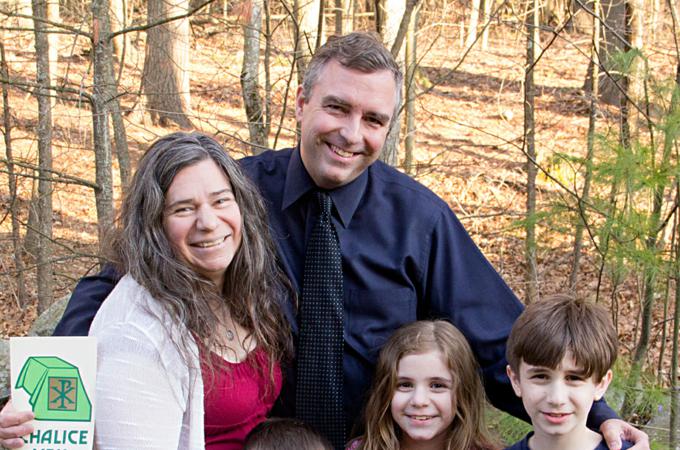Committee helps parents, parishes 'learn from each other'
ACTON -- All three of Sam and Elene Doucette's children huddled in the living room of their house in Acton to watch "Star Wars" as their parents sat at the kitchen table to speak to The Pilot.
"There's no owner's manual that comes with being a parent," Sam said, laughing.
"It's incredible, it changes your life," he said, glancing at his children.
Sam and Elene are part of the Archdiocese of Boston's Autism Study Committee, a committee under the Office of Outreach and Cultural Diversity designed to help the office provide better outreach to the community and to draw awareness to autism. Their eldest child, an 8 year old son Joseph, is autistic.
The committee has several members, most of whom also have a child or children with autism.
"I don't even think we've really been listened to like this before," Elene Doucette said of the committee.
Sam Doucette agreed. "That's been one of the biggest things in general, just knowing you're not alone," he said.
He said that when Joseph was younger, he "could barely speak." At around the age of two, he rarely said a word, unlike other children his age. This prompted Elene and Joseph's pediatrician to suspect he had autism, and he was tested and officially diagnosed.
"He's grown a lot," he said.
Elene Doucette noted Joseph also used to have a hard time with clapping at Mass, noting that people with autism are sometimes more affected by loud noises.
"Usually at the end of Mass, people who are really moved by the music will clap... Joseph would be upset every time there was a full applause," she said, noting that he isn't really upset by the loud noises anymore.
Instead, she said, Joseph is now beginning to find many aspects of the Church calming.
"He's found calming in this incredible Bible," she said, holding up a book that uses images to tell Bible stories, making them easier for Joseph to absorb.
"Autistic kids tend to be more visually inclined," said Sam Doucette.
"Having something like this to supplement what he learns in religious education has really helped," he said.
He noted that before finding that book, Joseph used apps that helped provide visual aids, and he hoped parishes could be accepting of those apps.
Even though Joseph's religious education class uses a variety of methods to teach, including movies and hands-on activities, there is a still a heavy verbal component, which is hard for Joseph. He noted that many children with autism have a harder time processing that type of verbal information, and it makes it especially hard in this instance since it is in a group, instead of one-on-one.
Still, the Doucettes said they are happy with the classes, and with their parish.
They said their parish gave Joseph a kit for first Communion and a kit for confession that are geared for kids with autism. The kits have visual items in them, such as flashcards and foam cut-outs.
People at the parish have been supportive, too, they said.
"Nine times out of 10," people will be understanding when one of their children are loud or crying, said Sam Doucette.
While they are appreciative of their parish, the Doucettes noted a few things they hope to change in parishes across the archdiocese through the Autism Study Committee.
One change they hope to see is parishes sit down "immediately" with new parishioners who have children with developmental difficulties, instead of meeting with the family when it is necessary, like when the children want to attend religious education. This immediate meeting would help make pastoral staff more aware of the family's needs sooner, and would help eliminate difficulties later on.
The couple also noted that it would be nice if Catholic schools with special needs programs could collaborate with parishes, bringing their knowledge or their programs to religious education classes at the parish level.
Sam Doucette, who works at a local military base, said he is also working to create collaboration between the Archdiocese of the Military Services and the Archdiocese of Boston. He said he has talked to co-workers, and they expressed interest in the idea.
The Military Archdiocese could "share how they help families (with developmentally disabled children) on the base," he said. "We can all learn from each other."
Families who are impacted by autism and wish to inquire about programming for their parishes can contact Robert Kavanaugh at 617-746-5791.



















